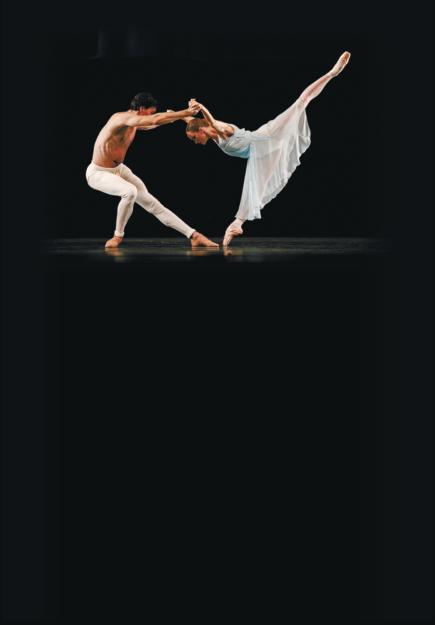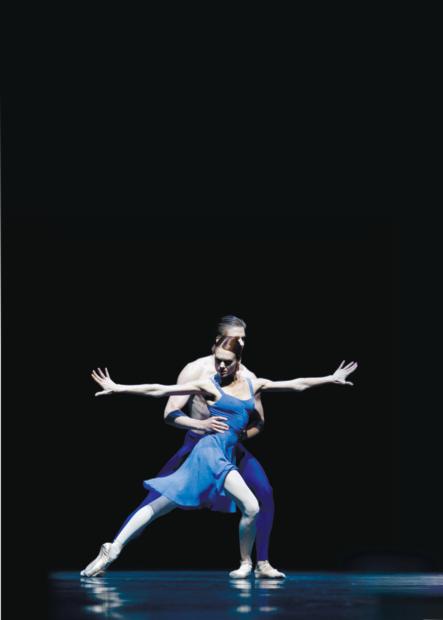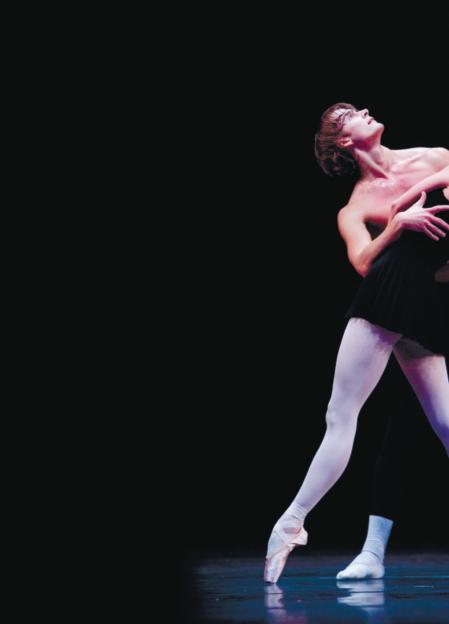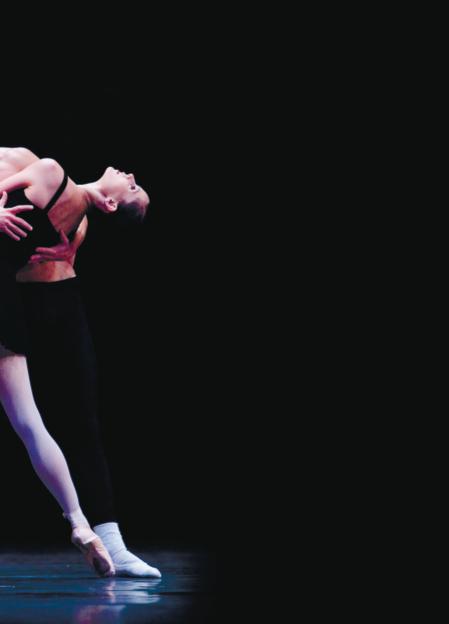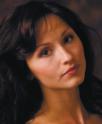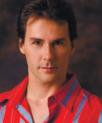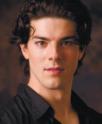漢斯.范曼倫 HANS VAN MANEN
漢斯.范曼倫初隨桑妮雅.
蓋斯凱爾習舞, 1957 年發表
首個編舞作品。 1961 至 1970 年間,范曼倫出任荷蘭舞蹈 劇場的聯合藝術總監; 1973
至 1987 年任荷蘭國家芭蕾舞 團的駐團編舞; 1988 到 2004 年他再任荷蘭舞蹈劇場駐場編
舞;2005年又回到荷蘭國家芭 蕾舞團出任駐團編舞。
范曼倫在國際上名聲顯赫,四 十多個舞團收其作品為常設舞 目便是明證。很多國際舞星都 曾演出他的作品,如安東尼. 杜威爾、瑪西.海蒂、娜塔莉 雅.瑪卡洛娃、魯道夫.雷里 耶夫。
范曼倫是少數成功普及現代芭 蕾舞的編舞家,他的作品融合 古典及現代芭蕾舞,以及其他 動作技巧,受到廣大觀眾歡 迎。他為荷蘭舞蹈劇場創作的
Hans van Manen had his first ballet lessons in the Amsterdam Studio of Sonia Gaskell. In 1957 he made his debut as a choreographer with the ballet Feestgericht . From 1961 to 1970 Van Manen was co-artistic director of the Netherlands Dance Theater (NDT), and from 1973 to 1987 resident choreographer of the Dutch National Ballet (DNB). From 1988 till 2004 he was once again resident choreographer of the NDT and in 2005 he returned to the DNB, also as resident choreographer.
Van Manen’s international fame is widespread, as evidenced by the forty-odd companies around the world with his works in their repertoire. His ballets have been performed by many great international stars, including Anthony Dowell, Marcia Haydée, Natalia Maka rova and Rudolf Nureyev.
作品,很多都具實驗風格,如 《聲音
獨舞I》(1986) 及《變化》(1970), 都是 力證。
范曼倫為荷蘭國家芭蕾舞團創作的舞
蹈偏向古典風格,特別是他七十年代的 作品,氣氛多典雅、浪漫。他的抒情作 品包括《慢板.鋼琴》 (1973) 、《舒曼
四首》 (1975) 、《大三重奏》 (1978) 及 《鋼琴變奏曲III》 (1982)。當他重返荷 蘭國家芭蕾舞團任編舞,又創作了《法 蘭克.布瑞基變奏》 (2005)及《鋼琴作 品六首》 (2006),獲評論及觀眾推崇為 「代表作」。 2008 年他又創作了《眼 淚》,作為《太空中》計劃的九支舞 之一。
范曼倫獲獎無數: 1991 年獲桑妮雅.
蓋斯凱爾終身成就獎、荷蘭劇院及音樂 廳管理協會編舞獎; 1993 年獲德國舞 蹈獎; 2004 年獲頒享負盛名的杜伊斯 堡音樂獎; 2005 年又於莫斯科大劇院 獲得貝奴瓦舞蹈獎之終身成就獎。
2007年 9月,荷蘭國家芭蕾舞團舉辦了 范曼倫舞蹈節,在三周內上演了五場不 同的節目,由世界各地頂級舞蹈團演出 超過 25 齣范曼倫的作品。藝術節開幕 之夜,荷蘭皇室授予范曼倫「荷蘭雄獅 騎士勳章」,表彰他的成就。
Van Manen is one of the few choreographers to have succeeded in popularising modern ballet — as a fusion of classical ballet and modern dance and other movement techniques — across a wide audience. Much of his work, for the NDT in particular, is experimental in character, with Solo for Voice I (1986) and Mutations (1970) being amongst the most striking examples.
With the DNB, Van Manen’s choreographic style became more classical and the atmosphere of his ballets, particularly in the 1970s, more courtly and romantic in their mood-imagery. Among his most lyrically romantic works are Adagio Hammerklavier (1973), Four Schumann Pieces (1975), Grand Trio (1978) and Piano Variations III (Trois Gnossiennes) (1982). In his new position at the DNB, Van Manen created several new ballets — Frank Bridge Variations (2005) and Six Piano Pieces (2006), were received as “masterpieces” by the press and the audience. In 2008 he created Tears, one of nine choreographies in the programme In Space.
Van Manen has received numerous awards, including the Sonia Gaskell Prize for his whole œuvre, the VSCD Choreographic Prize in 1991; the German Dance Prize in 1993; the prestigious City of Duisburg Music Prize in 2004; and the Benois de la Danse Prize for his whole œuvre at the Bolshoi Theatre in Moscow in 2005.
In September 2007 the Dutch National Ballet dedicated a festival to him. For three weeks the company presented 5 different programmes containing over 25 different choreographies, performed by some of the finest ballet companies in the world. At the opening of the festival he was proclaimed “Ridder in de Orde van de Nederlandse Leeuw”, a decoration of the Royal Household.
11 March 2010 (Thursday)
Choreographer Hans van Manen
Adagio Hammerklavier
Music Ludwig van Beethoven — Adagio from Piano Sonata No 29 in B flat, Op 106, Hammerklavier
Costume and Set Designer
Jean-Paul Vroom
Lighting Designer Jan Hofstra
Ballet Master
Rachel Beaujean
Piano Olga Khoziainova
Dancers Natalia Hoffmann, Tamás Nagy, Anna Tsygankova, Casey Herd, Larissa Lezhnina, Matthew Golding
— Interval —
Concertante
Music
Costume and Set Designer
Frank Martin — Petite Symphonie Concertante, Op 54 (From a recording of Petite Symphonie Concertante for Harp, Harpsichord, Piano and Two String Orchestra, by Academy of St Martin in the Fields, conducted by Sir Neville Marriner)
Keso Dekker
Lighting Designer Joop Caboort
Ballet Master
Dancers
Sonja Marchiolli
Larissa Lezhnina, Mathieu Gremillet, Charlotte Chapellier, Alexander Zhembrovskyy, Rachel Oomens, Roman Artyushkin, Giovana Magnani, Rink Sliphorst
— Interval —
Live
Music
Costume Designer
Franz Liszt — Sospiri, Bagatelle sans tonalité, Wiegenlied, Vier kleine Klavierstücke, Abschied
Keso Dekker
Lighting Designer Jan Hofstra
Ballet Master
Sonja Marchiolli
Piano Olga Khoziainova
Dancers/Performers
Michele Jimenez, Alexander Zhembrovskyy, Henk van Dijk
12 March 2010 (Friday)
Choreographer Hans van Manen
Adagio Hammerklavier
Music
Costume and Set Designer
Lighting Designer
Ballet Master
Piano
Dancers
— Interval —
Trois Gnossiennes*
Music
Set Designer
Costume Designers
Lighting Designer
Ballet Master
Piano
Dancers
Solo
Music
Costume and Set Designer
Lighting Designer
Ballet Master
Dancers
Sarcasmen
Music
Costume and Set Designer
Lighting Designer
Ballet Master
Piano
Dancers
— Interval —
Live
Music
Costume Designer
Lighting Designer
Ballet Master
Ludwig van Beethoven — Adagio from Piano Sonata No 29 in B flat, Op 106, Hammerklavier
Jean-Paul Vroom
Jan Hofstra
Rachel Beaujean
Olga Khoziainova
Natalia Hoffmann, Tamás Nagy, Anna Tsygankova, Casey Herd, Larissa Lezhnina, Matthew Golding
Erik Satie — Trois Gnossiennes
Hans van Manen
Joop Stokvis, Hans van Manen
Jan Hofstra
Sonja Marchiolli
Misha Mouratch
Larissa Lezhnina, Jozef Varga
J S Bach — Violin Partita, No 1 in B minor for Violin Solo, BWV1002
(Recording by Sigiswald Kuijken)
Keso Dekker
Joop Caboort
Rachel Beaujean
Juanjo Arques, Roman Artyushkin, Felipe Diaz
Sergey Prokofiev — Cinq Sarcasmes, Op 17
Hans van Manen
Joop Caboort
Sonja Marchiolli
Misha Mouratch
Anna Tsygankova, Alexander Zhembrovskyy
Franz Liszt — Sospiri, Bagatelle sans tonalité, Wiegenlied, Vier kleine Klavierstücke, Abschied
Keso Dekker
Jan Hofstra
Sonja Marchiolli
Piano Olga Khoziainova
Dancers/Performers
Michele Jimenez, Alexander Zhembrovskyy, Henk van Dijk
* 本地演員 Local Performers: Boniface Ho, Alz Ng, Vincent Wong
2010月3月14日(星期日)
編舞 漢斯.范曼倫
《慢板.鋼琴》
音樂
貝多芬:降B大調第二十九鋼琴奏鳴曲, 作品106之〈慢板〉
服裝及佈景設計 尚-保羅.弗隆
燈光設計
芭蕾舞導師
鋼琴
舞者
— 中場休息 —
《鋼琴變奏曲III》*
音樂
詹.霍夫斯特拉
蕾切爾.博珍
奧爾加.科齊亞伊洛娃
納塔妮亞.荷夫曼、托馬斯.納基、安娜.齊岡高娃、 卡西.赫特、拉莉莎.利茲妮娜、馬修.戈爾丁
薩蒂:《鋼琴變奏曲III》
佈景設計 漢斯.范曼倫
服裝設計
朱普.斯托克維斯、漢斯.范曼倫
燈光設計 詹.霍夫斯特拉
芭蕾舞導師 索妮亞.馬西奧妮
鋼琴 米莎.莫爾拉治
舞者 阿奴.維赫利亞蘭塔、卡西.赫特
《舞.獨》
音樂
巴赫:B小調小提琴獨奏組曲,作品1,BWV1002 (席捷斯瓦.庫伊肯演奏錄音)
服裝及佈景設計 科所.德科
燈光設計 朱普.卡布特
芭蕾舞導師
舞者
《諷刺》
音樂
蕾切爾.博珍
胡安荷.阿奎斯、羅曼.阿祖殊堅、菲利普.戴亞斯
普羅科菲耶夫:《諷刺五首》,作品17
服裝及佈景設計 漢斯.范曼倫
燈光設計 朱普.卡布特
芭蕾舞導師 蕾切爾.博珍
鋼琴 米莎.莫爾拉治
舞者
— 中場休息 —
《複協奏曲》
音樂
安娜.齊岡高娃、阿歷山大.扎博夫斯基
法蘭克.馬坦:《小交響協奏曲》,作品54 (《小交響協奏曲》,為豎琴、古鍵琴、鋼琴及雙弦樂團而作: 聖馬田音樂學院錄音,馬連那爵士指揮)
服裝及佈景設計 科所.德科
燈光設計 朱普.卡布特
芭蕾舞導師 索妮亞.馬西奧妮
舞者 拉莉莎.利茲妮娜、馬賽厄.格米勒、夏洛蒂.查柏利亞、 阿歷山大.扎博夫斯基、蕾切爾.歐曼斯、 羅曼.阿祖殊堅、祖凡娜.瑪妠妮、林克.斯利普斯特
《慢板.鋼琴》 世界首演:1973年10月4日
《慢板.鋼琴》是漢斯.范曼倫極抒情 的編舞作品。由三對舞者演出,開始
時,呈現男女之間由於慾望未能滿足而 引致不和,或形諸憤怒,或化為憂鬱。
第一對男女在互相吸引和彼此排斥之
間搖擺,第二對拉扯的力度更為強烈, 感情的表現更為熾熱。到最後一對,求 而不獲的怨惱所帶來的負面影響終於化 解。這最純粹的和諧,成了整件作品的 基調。男舞者由初時傲慢的態度,一改 而為懇求的姿態,希望對方無條件接 受自己,此一轉變正是這齣芭蕾舞精髓 所在。
澎湃豐沛的感情,在范曼倫手中,控制 得宜。他不斷營造張力,卻在達致高潮 前一刻,急流勇退。因此不斷此起彼伏 成了這個作品的特色,其間那些戛然 而止的姿勢,就跟翩翩起舞的動作同樣 重要。
Adagio Hammerklavier
World premiere: 4 October 1973
Adagio Hammerklavier is one of the most lyrical choreographies created by Hans van Manen. This ballet for three couples begins by displaying the disharmony in relationships caused by unfulfilled desires, expressed in anger or melancholy. The first duet exhibits a constant oscillation between attraction and repulsion, which becomes fiercer and more passionate in the second. The negative ripplings of the irritation caused by an unanswered appeal to the partner are resolved in the final duet, which is of the purest harmony and thus provides the keynote for the whole. The quintessence of the ballet is revealed in the man’s variation, which starts boastfully but breaks off with a gesture asking for unconditional acceptance.
Van Manen keeps the abundance of emotional outbursts in proportion, repeatedly building up tension and then retreating before the climax. This accounts for the continuous ebb and flow so characteristic of this ballet, in which the halted poses are as essential as the dancing.
© Stephanie Pistel
《複協奏曲》
世界首演:1994年1月13日
1994 年,漢斯.范曼倫為荷蘭舞蹈 劇場青年團八名舞者創作了《複協奏 曲》,用的是作曲家法蘭克.馬坦的 《小交響協奏曲》。
漢斯.范曼倫這支芭蕾舞引人入勝,充 滿幽默和挑釁意味。單人舞神采飛揚, 雙人舞則深沉憂鬱,充份體現范曼倫的 風格:寓微妙於單純、合條理於視覺、 賦韻味於音樂。
Concertante
World premiere: 13 January 1994
In 1994 Hans van Manen created Concertante for eight dancers of the junior company of the Nederlands Dans Theater to the music piece Petite Symphony Concertante by the composer Frank Martin.
This fascinating creation is a ballet filled with humour and aggression in which the sparkling solos and intense pas de deux characterise Van Manen’s style: sophisticated simplicity, visual logic and wonderful musicality.
© Angela Sterling
《鋼琴變奏曲III》 世界首演:1982年10月20日
范曼倫的作品,皆以結構清晰、單純而 精妙著稱。《鋼琴變奏曲III》是一支短 篇雙人舞,配上薩蒂的音樂,出色地表 現了以上特點。范曼倫的雙人舞總是描 述現實中的男女,刻劃他們交往中的壓 力。這個作品就是從男女先前互相提防 的關係,進展到放開襟懷、和諧相處的 境界。
《鋼琴變奏曲 III 》充滿令人驚喜的筆 觸。兩個舞者由於要提舉起對方,或共 同擺定一個姿勢,體型上的差異格外 明顯,但他們卻把動作一一交代得乾淨 俐落。
Trois Gnossiennes (Piano Variations III) World premiere: 20 October 1982
Hans van Manen’s work is known for its clear structure and sophisticated simplicity. Trois Gnossiennes, a short pas de deux set to Satie, is a remarkable display of this. Van Manen’s pas de deux always seem to involve real people, and the stresses and strains of real relationships. This one moves from initial wariness to relaxation and harmony.
In Trois Gnossiennes , packed with delightful surprises, the physical disparity between the dancers is emphasised by the difficult lifts and poses, all of which are dispatched with considerable ease.
© Angela Sterling
《諷剌》
世界首演: 1981 年 12 月 28 日
這支副題為《鋼琴變奏曲 II 》的雙人舞中,情慾和侵略 同時兼備。舞作展現一男一女,既是伴侶,也是冤家,
彼此之間的吸引力無可抗拒,但籠罩着他們的氣氛卻是 不安和惱怒。在他們的舞蹈對話中,大家不斷互相挑 撥、拒絕、誘惑、羞辱,態度是那麼無情,表現卻總 是那麼幽默,不是冷嘲,就是熱諷。他們常常徘徊在對 方身旁,像猛獸守候着獵物,伺機撲向對方的致命弱 點。兩人的情慾特別不堪一擊,尤其是女人用手按在 男人的褲襠,半是愛撫半是譏笑那一段,含義再清晰不 過。范曼倫向訪問者談及他作品這一個於禮不合(卻惹 得觀眾哄笑)的時刻,說:「我的用意是十分嚴肅的。
手放在陰部上,若視之為喜劇姿勢,代表了單方面的羞 辱。但我真正關心的是這姿勢背後的諷刺意味。我想說 男女雙方誰也不會佔到上風,即使他們一連多天爭執不 斷。現在我就當那些笑聲跟你看見有人摔倒是一樣,他 可以 得很難受,但你還是忍不住笑,你也拿自己沒 辦法。」
普羅科菲耶夫的《諷剌五首》寫於俄國革命前,即 1912 至 1914年間他「左傾」時期的巔峰。這五首鋼琴作品的 樂句常帶嘲弄意味,音色節奏像敲擊,結構一絲不苟, 但並非表面所見的那樣不近人情。作曲家提到第五也是 最後一首樂曲時,說:「有時我們會很冷漠地嘲笑一些 人或一些事情,但當我們仔細觀察,就會看到所嘲笑的 對象是如何令人同情、如何悲慘不幸。於是我們開始問 心有愧。我們的恥笑聲猶在耳邊響起,但此刻我們嘲笑 的是自己。」因此,奏過第一首(暴風雨般激烈的)敲 擊節奏和經歷過第二首突如其來的侵略(彈性速度的快 板),那麼第三首(迅猛的快板)中段的抒情部份也不 算完全背離整個作品的精神。不過,這種尋求和解的意 圖,卻很少出現於第四首(狂怒的)的危險狂亂之中, 甚至在執迷不捨的第五首(非常迅猛的)中間那較緩慢 的一段,也聽不到。
節目介紹中譯:昌明
Sarcasmen (Piano Variations II)
World premiere: 28 December 1981
Eroticism and agression are combined in this duet (subtitled Piano Variations II). The dance showcases a man and a woman who are both partners and adversaries, irresistibly attracted to each other in an atmosphere of restlessness and irritation. In their danced dialogue they constantly provoke, reject, seduce and humiliate each other in a ruthless, but always humorous, manner that is either ironic or sarcastic. They often prowl round each other as if they were beasts of prey, looking for weak spots in their partner. Both are especially vulnerable in their sexuality, as is most clearly demonstrated by the episode in which the woman, partly caressing and partly sneering, lays her hand on the man’s crotch. Referring to this infamous moment in Van Manen’s œuvre (which can provoke audience laughter) the choreographer told one interviewer, “I meant that to be deadly serious. Interpreted as a comic gesture, that hand on the cock represented a one-sided humiliation, whereas I was actually concerned with the sarcasm behind the gesture. The idea was that neither of them get the upper hand, they could go on with this scrapping for days. Now I take it as the same sort of laugh you get when you see someone fall over; it can be awful, but you've got to laugh. There’s nothing you can do about it.”
Prokofiev’s Cinq Sarcasmes — which were written at the height of his pre-Revolutionary “leftist” period between 1912 and 1914 — are often derisive in phrasing, percussive in articulation, and hard in texture, but they are not as unsympathetic as they might seem. As the composer himself said of the fifth and last of them: “it sometimes happens that we laugh cruelly at somebody or something but when we look at it more closely we see how pitiable and unhappy is the thing we have been laughing at. Then we begin to feel ill at ease. Our laughter echoes in our ears but now it is ourselves that we are laughing at.” So, after the hammered rhythms of the first ( Tempestoso ) and the unpredictable aggressions of the second (Allegro rubato), the lyrical middle section of the third (Allegro precipitato) is not entirely foreign to the spirit of the work. There is, however, little of that conciliatory kind of thing in the dangerously deranged fourth piece (Smanioso) or even in the slower middle section of the otherwise obsessive fifth piece (Precipitosissimo).
© Angela Sterling
尚-保羅.弗隆
舞台及服裝設計(《慢板.鋼琴》)
Jean-Paul Vroom Set and costume designer (Adagio Hammerklavier)
尚-保羅.弗隆畢業於海牙皇家音樂學院,主修圖形設計及繪畫;其後於巴黎創作了大量蝕刻畫、石 印畫及絲網畫。
弗隆於六十年代末開始與范曼倫合作,成為編舞家的固定搭檔。弗隆善用霓虹燈和煙霧創造抽象舞 台效果。
2006年弗隆逝世,享年84歲。
After training as a graphic designer and painter at the Royal Academy of Art in The Hague, JeanPaul Vroom left for Paris, where he created numerous etchings, lithos and silk-screens.
Vroom’s collaboration with Hans van Manen started at the end of the 1960s. He became the choreographer’s regular set designer, creating abstract sets with neon lighting and film. Jean-Paul Vroom passed away in 2006 at the age of 84.
詹.霍夫斯特拉
燈光設計(《慢板.鋼琴》、《現場直播》、《鋼琴變奏曲III》)
Jan Hofstra Lighting designer (Adagio Hammerklavier, Live,Trois Gnossiennes)
詹.霍夫斯特拉主修儀器製造、電子工程及無線電科技,1996年開始效力荷蘭國家芭蕾舞團。
1994年至今,霍夫斯特拉為阿姆斯特丹國立博物館的數個大型展覽設計燈光。 1996年開始為范曼 倫多齣作品設計舞台燈光;2001年獲頒奧蘭治-拿騷爵士勛位;2008年獲丹色方’79優異獎。
Jan Thomas Hofstra studied instrument-making, electrical engineering and radio technology. He has worked for the Dutch National Ballet since 1965.
Since 1994, Hofstra has provided the lighting for a number of large exhibitions in Amsterdam’s Rijksmuseum, and has been active as a lighting designer for Hans van Manen since 1996. In 2001, he was made a Knight in the Order of Orange-Nassau, and in 2008 he received the Merit Award from the Dansersfonds ’79.
朱普.卡布特
燈光設計(《複協奏曲》、《舞.獨》、《諷刺》)
Joop Caboort Lighting designer (Concertante, Solo, Sarcasmen)
朱普.卡布特 1965年出任荷蘭舞蹈劇場技師, 1970年至 1995年間任該團技術部主任,曾為該團設 計燈光二百餘齣。卡布特合作過的舞台設計有弗隆、卡茨、諾貝、貝利斯及麥法蘭等。1995年起他 成為自由燈光設計師,為多個國際藝團設計燈光。
Joop Caboort joined the Nederlands Dans Theater in 1965 as a technician. From 1970 to 1995 he was head of its technical department, and designed the lighting for over two hundred of its works. Caboort has collaborated with set designers like Jean-Paul Vroom, William Katz, Walter Nobbe, Nadine Baylis and John F. Macfarlane. Since 1995, he has acted as a freelance lighting designer for numerous international companies.
荷蘭國家芭蕾舞團
DUTCH NATIONAL BALLET
首席舞蹈員 Principals
Rüta Jezerskyte
Igone de Jongh
Marisa Lopez
Cédric Ygnace
藝術總監:特德.布蘭德森
Artistic Director: Ted Brandsen
Casey Herd
Anna Tsygankova
Tamás Nagy
Michele Jimenez
Jozef Varga
Larissa Lezhnina
獨舞員 Soloists
Charlotte Chapellier
Natalia Hoffmann
Diaz
Anu Viheriäranta
Golding
Juanjo Arques
Seh Yun Kim, Maia Makhateli, Sefton Clarke,
Steven Etienne, Moises Martin Cintas, Vera Tsyganova
初級獨舞員 Grand Sujets
Viktoriya Ananyan
Nadia Yanowsky
Remi Wörtmeyer
領舞員 Coryphees
Rachel Oomens
Suzanne Kaic
Juan Eymar
Rosi Soto
Roman Artyushkin
Alexander Zhembrovskyy
Maiko Tsutsumi
Arthur Shesterikov Oleksey Smolyakov
Kim Vieira
Arthur Shesterikov Rink Sliphorst
Maria Chugai
Jordan-Elizabeth Long
群舞員 Corps de Ballet
Laura Bury
Erica Horwood
Samantha Mednick
Milena Sidorova
Tycho Hupperets
Teun van Roosmalen
Aubert Vanderlinden
學員 Élèves
Emily Ellis
Anatole Babenko
Ryan Ocampo
Daniela Cardim Annabelle Hellinckx
Julia Gillespie Sang-yi Han
Natasja Lucassen Giovana Magnani Amanda McGuigan
Joanna Mednick Pascalle Paerel Sandra Quintyn
Rebeca Taboada Rivas
Milán Madar
Chao Shi
Christopher Kent Weisler
Toshiro Abbley Koen Havenith
Dario Mealli
Bruno da Rocha Pereira
James Stout Wolgang Tietze
Angela Agresti Naira Agvanean Hannah de Klein Ayana Kamemoto
Sascha Mukhamedov
Sarah Poss
練習生 Trainee
Tess Sturmann
Charlotte O’Donnel-Barber Aya Okumura
Wendeline Wijkstra Alexander Loxton
Felipe
Mathieu Gremillet
Matthew



